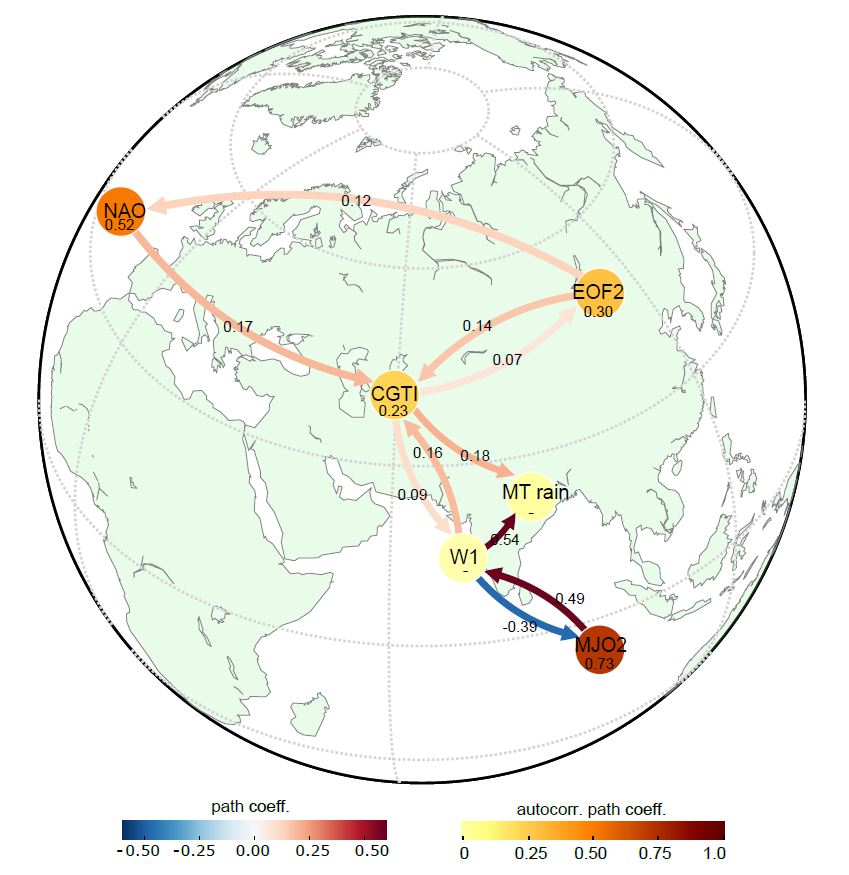
To improve our understanding of these tropical – extratropical teleconnections in boreal summer, we apply causal discovery to assess causal pathways between different components of the ISM circulation system and with far-away regions. Using this technique, the importance and magnitude of tropical and extratropical drivers of the ISM circulation and intraseasonal variability are assessed. A two-way causal link between the mid-latitude circulation and the ISM is found.

Moreover, the influence of the El Niño-Southern Oscillation pattern and of different intraseasonal timescales on these interactions is analysed. Causal discovery tools also proved their usefulness in providing skilful seasonal statistical forecasts of ISM cumulative rainfall. This work paves the way for process-based validation of boreal summer teleconnections in (sub-)seasonal forecast models and climate models and therefore works towards improved sub-seasonal predictions and climate projections.
Giorgia di Capua is member of the ESMO-Working Group.





